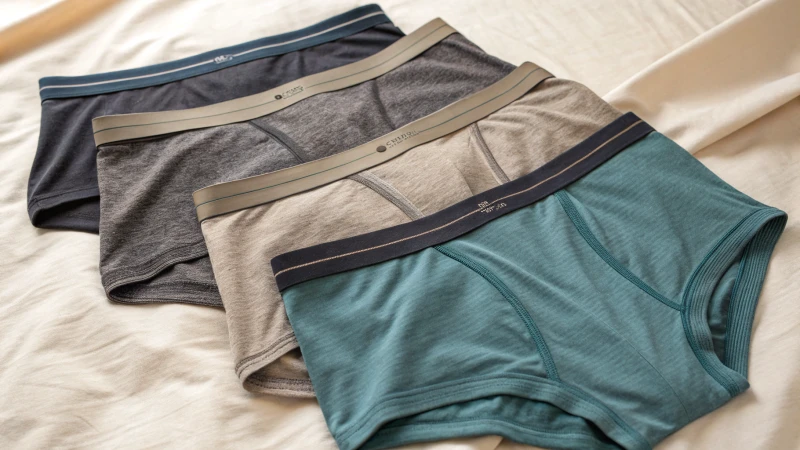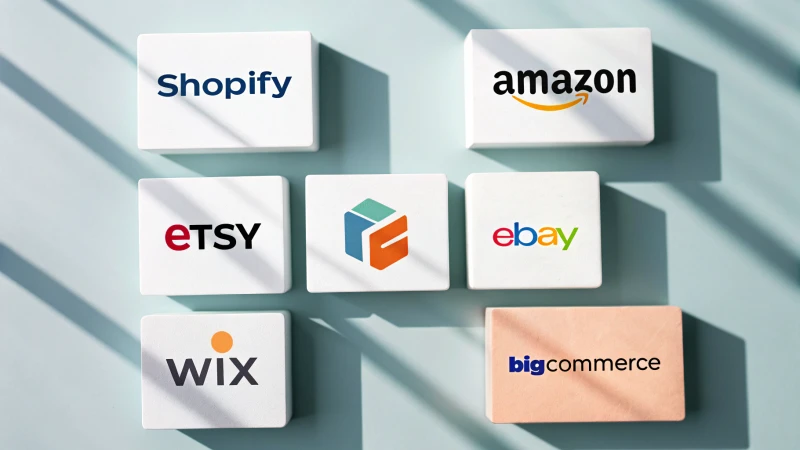
Choosing the right online platform for your private label products feels a bit like picking a dance partner at prom. So many options, each with its own rhythm and style.
The best platform to sell private label products online depends on your business needs: Shopify offers customization, Amazon provides vast reach, Etsy suits unique products, eBay offers auctions, Wix is simple to use, and BigCommerce supports scalability.
When I first started exploring platforms to sell my private label products, it was like standing in front of a candy store window. Each platform offered its own set of shiny features and potential. I remember feeling a bit overwhelmed by all the choices, but also excited about the possibilities.
Understanding the unique strengths of each platform can really help in aligning them with your business goals and customer expectations. Dive into the specifics of what each has to offer, and you'll find the perfect match for your business dreams.
Shopify offers the best customization for private labels.True
Shopify is known for its extensive customization options, ideal for unique branding.
eBay is best for selling unique private label products.False
Etsy, not eBay, is recognized for selling unique and handmade products.
What Makes Shopify a Game-Changer for Private Label Sellers?
Ever felt like you're just one step away from turning your private label dream into reality?
Shopify's standout features for private label sellers include customizable storefronts, integrated inventory management, seamless payment processing, and comprehensive marketing tools, all designed to simplify brand creation and enhance customer engagement.
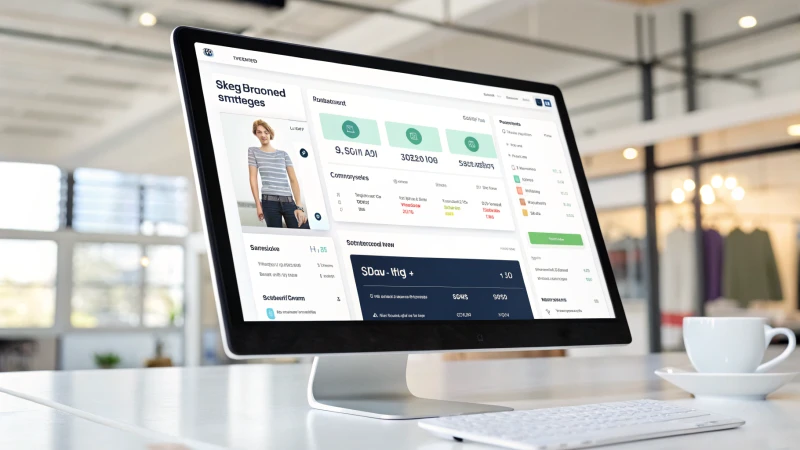
Customizable Storefronts
Imagine this: You're sitting in your favorite coffee shop, laptop open, creating the online store you've always dreamed of. With Shopify, the array of customizable themes lets me bring my brand's personality to life. It's like choosing the perfect outfit that makes you feel confident and ready to conquer the world. I can tweak templates to match my unique style, ensuring my store not only stands out but feels genuinely "me." Ensure a distinctive look1 that sets you apart in the marketplace.
Integrated Inventory Management
Remember that time you ran out of your favorite snack just when you needed it most? Managing inventory for a private label shouldn't feel like that. With Shopify's real-time inventory management tools, I can easily track stock levels, making sure my shelves are never bare when customers come knocking. It's like having a reliable friend who always keeps you in check across every sales channel from one simple dashboard.
Seamless Payment Processing
We all love a smooth transaction experience, right? I mean, who hasn't abandoned a cart because of a complicated checkout? Shopify Payments lets me accept everything from credit cards to digital wallets without needing third-party processors. It's as if you're breezing through an express checkout lane with zero hassle. Plus, with support for multiple currencies, I can sell globally as easily as locally while improving checkout efficiency2.
Extensive Marketing Tools
Launching an email campaign or offering special discounts can feel daunting, but not with Shopify. Their suite of marketing tools helps me boost visibility and drive sales effortlessly. I can dive into SEO optimizations or set up email marketing campaigns like a pro. It's like having a marketing team at your fingertips, guiding you through each step while you sit back and watch the magic happen.
App Integrations
Ever thought about expanding your business without the stress? Shopify’s extensive app ecosystem makes it possible. Whether it’s using Oberlo for dropshipping or Printful for custom designs, these integrations expand my store’s functionality in ways tailored specifically for my needs.
| Feature | Benefit |
|---|---|
| Customizable Storefronts | Create a unique brand identity |
| Integrated Inventory | Simplify stock management |
| Payment Processing | Efficiently manage transactions |
| Marketing Tools | Enhance customer engagement |
| App Integrations | Access specialized e-commerce solutions |
Exploring these features has been like having a toolkit specially designed for my private label business journey on Shopify. It's all about setting a strong foundation where growth meets customer satisfaction seamlessly.
Diving deeper into these features empowers me to optimize my operations effectively on Shopify, focusing on crafting a branded shopping experience3 that truly resonates with my audience. It's about building something not just functional but memorable.
Shopify themes are not customizable for private label sellers.False
Shopify offers customizable themes to create unique brand experiences.
Shopify supports multiple currencies for global sales.True
Shopify Payments allows transactions in various currencies, easing global sales.
How Does Selling on Amazon Compare to Other Platforms?
Have you ever wondered if selling on Amazon is the best choice for your e-commerce venture? Let's explore how it compares to other platforms like Shopify and Etsy, highlighting the pros and cons of each.
Selling on Amazon provides expansive reach and convenience through Fulfillment by Amazon (FBA), but involves high competition and fees. Conversely, platforms like Shopify and Etsy offer greater control and cater to niche markets, providing unique selling opportunities.
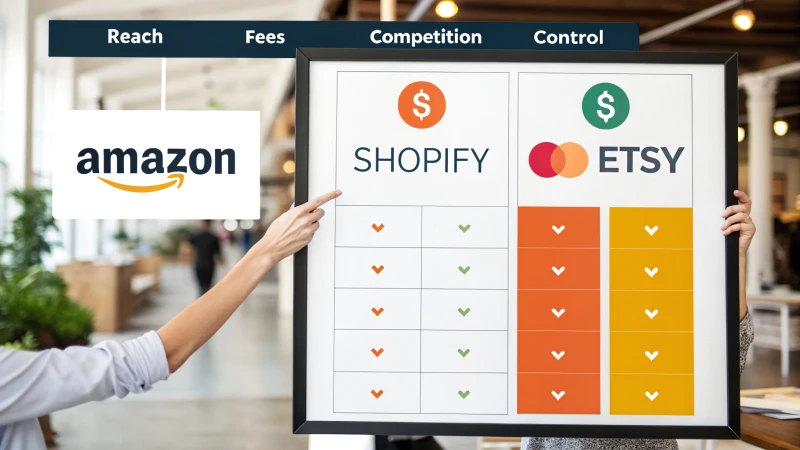
Reach and Audience
Imagine having access to a global audience at your fingertips; that's what selling on Amazon feels like. I remember starting my journey, filled with excitement about reaching customers worldwide. However, it wasn't long before I realized the fierce competition on Amazon meant I had to work hard to stand out. On the other hand, platforms like Shopify4 offered me a chance to craft a unique brand experience. This direct customer engagement has been invaluable in building long-term loyalty.
Cost Considerations
One of my biggest learning curves was understanding the costs involved. With Amazon's FBA, I loved how logistics were simplified, yet the fees felt like they were chipping away at my profits. When I explored Etsy5 and eBay, I found their lower fees more appealing, though they came with their own set of challenges, like less traffic.
| Platform | Listing Fees | Transaction Fees | Additional Costs |
|---|---|---|---|
| Amazon | Varies | 15% average | FBA fees |
| Shopify | Monthly fee | Varies | App costs |
| Etsy | $0.20/item | 5% | Payment fees |
Customization and Branding
One thing I truly appreciated about Shopify was the ability to customize my storefront. I could finally let my creativity shine, unlike Amazon's standard product pages. I also explored Wix6, which was perfect for creating an aesthetically pleasing online presence, allowing me to express my brand's personality.
Market Niche Suitability
For anyone with handmade or unique products, like when I first started selling my handmade crafts, Etsy was a dream come true. It catered to my creativity and helped me connect with like-minded customers. On the flip side, Amazon's broad appeal made it challenging to carve out a niche without hefty marketing investments.
Logistics and Fulfillment
Amazon's FBA was a lifesaver for handling large volumes, but when I needed more flexibility, platforms like BigCommerce7 came in handy. They allowed integration with multiple carriers, making logistics management a breeze.
Ultimately, choosing a platform depends on your business goals and resources. While Amazon's reach is unmatched, Shopify and Etsy provide unique opportunities for brand control and market targeting. Consider what aligns best with your vision before making a decision.
Security and Trust
Building trust with my customers was paramount. Both Amazon and eBay had excellent buyer protection reputations, which reassured my buyers. However, as I ventured onto Shopify or BigCommerce, I realized I needed to establish my security protocols. By leveraging SSL certificates and trusted payment gateways, I was able to boost my store's credibility.
In the end, each platform offers distinct advantages tailored to different selling strategies and product types. Reflecting on your business model will guide you in choosing the right platform for your needs.
Amazon has the highest transaction fees among the platforms.True
Amazon's average transaction fee is 15%, higher than Etsy's 5%.
Shopify offers better branding control than Amazon.True
Shopify allows tailored storefronts, unlike Amazon's uniform pages.
Is Etsy the Right Choice for Niche Private Label Products?
Have you ever wondered if Etsy could be your secret weapon for selling niche private label products? Let's dive into its world of creative possibilities and see if it fits your business dreams.
Etsy is a great platform for niche private label products, especially if creativity and uniqueness are your selling points. It caters to those who appreciate handmade and custom items, aligning perfectly with niche markets.

Why Etsy Appeals to Niche Private Label Sellers
From the moment I first considered selling my own creations, Etsy felt like a comforting home. It's not just a platform; it's a community where buyers come hunting for that special something—a unique twist on the everyday. This makes it an ideal space for private label products that stand out. Whether it's a quirky mug design or an artisanal soap blend, Etsy's audience8 is eager for distinct, personalized goods.
Table: Key Benefits of Selling on Etsy
| Benefit | Description |
|---|---|
| Targeted Audience | Access to buyers looking for unique, high-quality products |
| Ease of Use | Intuitive interface simplifies listing and managing products |
| Community Support | Forums and groups offer insights and assistance from other sellers |
Challenges to Consider
But let's be real—it's not all sunshine and rainbows. The marketplace is bustling, and carving out your niche amidst millions of sellers can feel daunting. I've found that using tools like eRank9 has helped optimize my listings, boosting visibility. And then there's the fee structure—listing fees, transaction fees—they can eat into profits if you're not strategic about pricing.
Integrating Tools for Success
I've learned that leveraging integration tools10 like Printify is crucial for managing the nuts and bolts—inventory, order fulfillment—all without losing focus on what I love: the creative process. These tools help me keep my hands free for designing while ensuring everything runs smoothly behind the scenes.
Markdown Tip: Manage Multiple Shops
If you're like me and dream of diversifying your product lines, juggling multiple shops might seem overwhelming at first. But with a little help from analytics and savvy marketing tools, tracking performance and enhancing visibility becomes manageable.
By understanding these dynamics, I've been able to make informed decisions about aligning my business strategy with Etsy's offerings. Exploring additional resources and tapping into community wisdom has significantly boosted my journey on the platform. Aligning Etsy's unique features with my specific business needs has guided me in deciding if it's the right fit for my niche private label products.
Using these strategies, I aim to maximize potential while skillfully navigating Etsy's challenges. By harnessing every available resource, I've learned to optimize my store's performance, ensuring it meets my target audience's desires. This well-rounded approach has been key to determining whether Etsy truly suits my niche ambitions.
Etsy is ideal for niche private label sellers.True
Etsy's audience seeks unique, customized products, fitting niche markets.
Etsy charges no fees for listings.False
Etsy charges listing and transaction fees, affecting profit margins.
Should I Consider eBay or Wix for My E-commerce Store?
Choosing the perfect platform for your e-commerce store is like picking the right pair of shoes for a marathon—critical for success and comfort. So, how do I decide between eBay and Wix?
When deciding between eBay and Wix for my e-commerce store, I weigh my goals. eBay offers global reach and auction-style sales, while Wix provides design flexibility and brand control. Evaluating my business needs helps me choose the best fit.
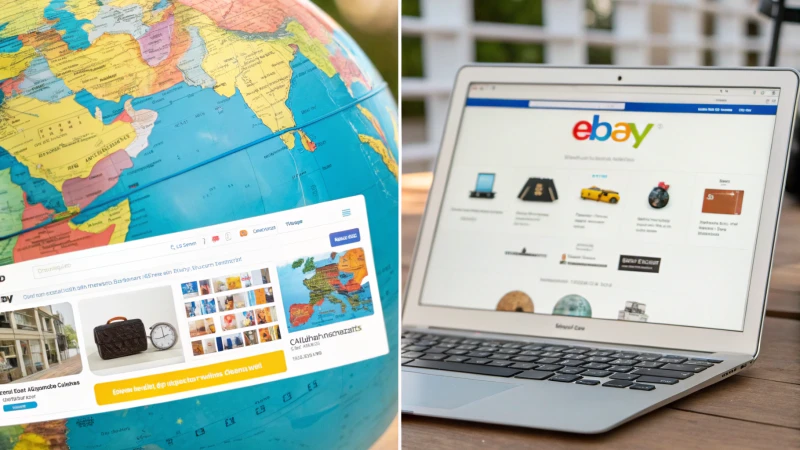
Understanding eBay and Wix: An Overview
When I first ventured into the world of e-commerce, I remember feeling overwhelmed by the choices. But when it came down to it, eBay and Wix stood out like two bright stars in a galaxy of options.
eBay is like that bustling marketplace you wander through, full of colorful stalls and people haggling over prices. It's well-known for its auction-style11 and fixed-price listings, which means I can reach a massive, global customer base without having to build a website from scratch. The thrill of potentially selling to someone halfway around the world is exhilarating. However, with great reach comes great competition. I find myself constantly tweaking pricing strategies12 to stand out in this crowded space.
Then there's Wix—think of it as my personal canvas. With its easy-to-use drag-and-drop builder13, designing a unique website becomes an art form where I can express my brand's personality. It's perfect if I'm aiming for control over branding and customer experience. Although Wix doesn’t offer the same immediate audience as a marketplace, it gives me the freedom to create something truly mine.
| Feature | eBay | Wix |
|---|---|---|
| Audience | Global reach | Self-driven traffic |
| Sales Model | Auction or fixed-price | Custom storefront |
| Customization | Limited to listings | Full design flexibility |
| Fees | Listing and selling fees | Subscription-based pricing |
Benefits of eBay for E-commerce
- Large Audience: eBay's global marketplace connects me with millions of potential buyers, which is fantastic when I'm trying to get my product noticed.
- Quick Setup: I can start selling almost immediately with minimal setup effort, ideal for those impulsive moments when I just want to dive in.
- Trust Factor: Buyers trust eBay due to its long-standing reputation, which adds a layer of credibility to my store.
Yet, every silver lining has a cloud; the competition intensity14 and fees are factors I need to navigate carefully.
Advantages of Using Wix for My Store
- Design Freedom: Creating a fully branded site with complete control over aesthetics allows me to craft my own narrative.
- Integrated Tools: With built-in features like SEO tools, marketing integrations, and analytics, it's like having a Swiss Army knife for my online business.
- Subscription Pricing: Understandable pricing models mean no surprise fees popping up unexpectedly, which makes budgeting much simpler.
Despite these perks, getting traffic to a new Wix site requires strategic marketing efforts—an exciting challenge but one that demands careful planning.
Decision Factors: What to Consider
- Business Goals: Am I seeking quick access to a large audience (eBay) or a branded experience (Wix)?
- Budget Considerations: How do each platform's costs align with my financial strategy?
- Branding Needs: Is my focus on brand storytelling or maximizing sales volume?
These reflections help me make an informed decision when choosing between eBay and Wix15 for my online business. It feels like crafting the right path for my entrepreneurial journey.
eBay provides a customizable storefront for sellers.False
eBay offers limited customization focused on listings, not full storefronts.
Wix requires strategic marketing to drive traffic.True
Wix sites need active marketing to attract visitors as they lack built-in audience.
Conclusion
Choosing the best platform for selling private label products online depends on your business needs, with options like Shopify, Amazon, Etsy, eBay, Wix, and BigCommerce each offering unique advantages.
Discover how to personalize your Shopify store to reflect your brand identity. ↩
Learn about the various payment methods available with Shopify Payments. ↩
Gain insights into crafting a memorable shopping experience on Shopify. ↩
Explore how Shopify allows for extensive customization to strengthen your brand identity. ↩
Discover Etsy's fee structure and how it compares with Amazon's costs. ↩
Learn about Wix's design flexibility for creating unique online stores. ↩
Find out how BigCommerce integrates with multiple logistics partners. ↩
Understand how Etsy attracts buyers seeking unique items, aligning with niche markets. ↩
Discover how eRank can improve Etsy listings, helping you stand out among competitors. ↩
Learn about tools that streamline operations for Etsy sellers, enhancing efficiency. ↩
Discover how eBay's extensive global reach can benefit your sales strategy. ↩
Learn effective pricing strategies for standing out in the competitive eBay marketplace. ↩
Explore Wix's user-friendly features that simplify building a custom online store. ↩
Understand the competitive landscape among sellers on eBay. ↩
Compare the strengths and weaknesses of eBay and Wix for your ecommerce needs. ↩




